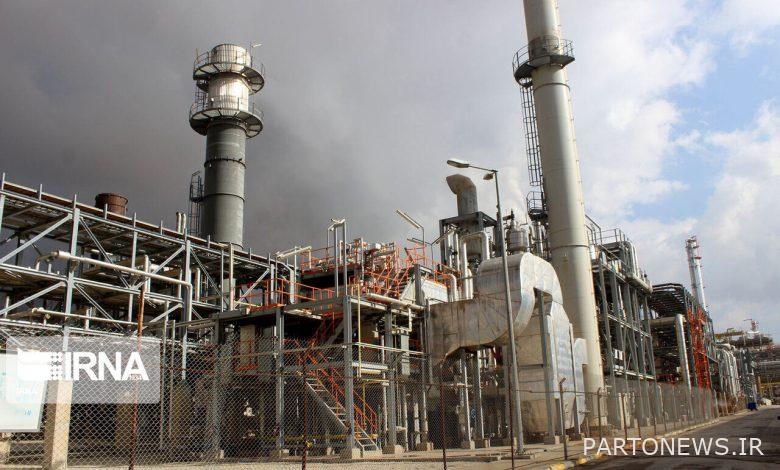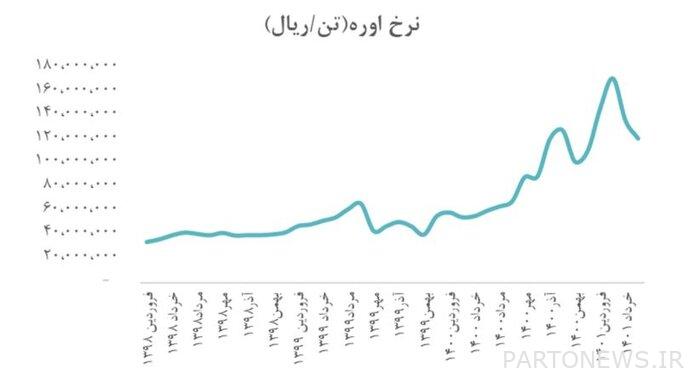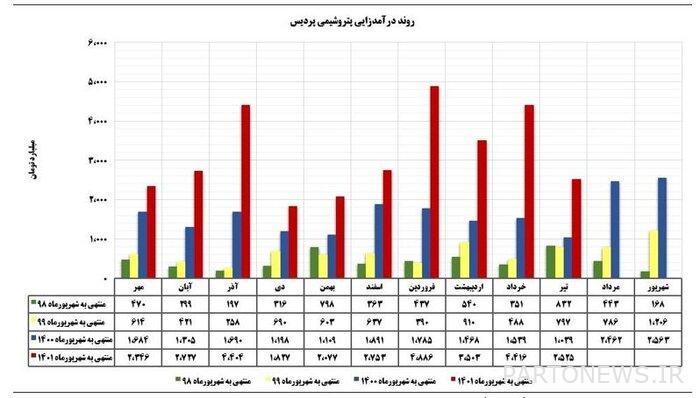A narrative of fears and hopes in the largest producer of ammonia and urea in the Middle East

According to IRNA, providing food security, which is one of the goals of human societies in all eras and one of the most important pillars of individual rights and human and society security, is considered a fundamental challenge. Achieving sustainable food systems is considered as one of the main pillars of achieving sustainable development and ensuring food security for the current and future generations.
The ever-increasing human population and the need for more food on the one hand, and the decrease in the extent of arable lands and their fertility on the other hand, have led human societies to use chemical fertilizers.
Pardis Petrochemical Company is the largest ammonia and urea producer complex in the Middle East and one of the largest producers of these products in the world with the production of more than 5 million tons of products per year, which has taken long and effective steps in the direction of producing enough food for the people of the world.
The sale of Urea Fardis is higher than the world prices
Pardis Petrochemical has achieved significant success in the field of export and export sales by eliminating intermediaries and establishing coordination between exporters with the correct management of the Iran Urea Working Group. Considering the prices of Argos magazine and the sales price of Pardis petrochemicals, we find that the sales prices of Pardis petrochemicals are always higher than the prices offered at the global level and even reach 840 dollars at some point. Whereas before, by selling urea to middlemen and then supplying it to foreign markets, part of this profit went to middlemen’s pockets and urea lost its high value for sale.
According to the information published in the Kodal system, Pardis Petrochemical earned 35923 billion Tomans from the sale of its ammonia and urea products in the 11-month period ending in August 1401, which has increased by 109% compared to the same period last year. Shepdis has earned 4453 billion tomans by selling 300,000 tons of ammonia and urea in August this year, which is about 77.5% more than last year’s August.
Investigating Shepdis’s growth trend in the last three years
The following chart examines the price trend of urea per ton between 1998 and 1401.

The chart below shows the sales trend of Fardis petrochemicals in the years 2018-2019, which shows the fundamental evolution in the sale of products.

The amount of production and sales due to the realization of the development plan in the previous years and the sales rate due to the increase in the dollar rate and the upward trend in the sale of urea due to the growth of demand at the global level, along with the correct management of product sales by eliminating intermediaries, have always been upward.
Conversion of flare to urea in the fourth phase of campus petrochemicals
Hemat Petrochemical, 50% of whose shares belonged to Persian Gulf Holding and the other 50% belonged to Parsian Oil and Gas Holding, has been purchased by Pardis Petrochemical. In this project, the exhaust gases of the flares will be collected at the regional level and will be converted into one million tons of urea by using 10% of the excess ammonia from the campus (70% of Hemet petrochemical feed). This project is an environmental issue and both internal and external finance will be possible for this project.
By using this annual plan, more than 800,000 tons of carbon dioxide from petrochemicals and refineries in Asalouye will be prevented from burning and emitting 670 million cubic meters of methane gas annually, which is good news for the residents of this region and industry workers. By carrying out this project as the fourth phase of Pardis Petrochemical, one million tons will be added to the urea production capacity of this company.
Basic achievements of campus petrochemical management
Exporting one million tons of urea to South American countries and clearing it with livestock and agricultural products, which are in dire need of the country, are other effective measures of “Shepedis” to meet domestic needs. In addition, because of the sanctions, the country’s sales power has decreased and the amount of exports has increased significantly.
Reducing the overhaul period of Pardis Petrochemical from 70 to 80 days to less than 20 days is another effective measure of “Shepadis” management to increase the efficiency and production of this complex. The reduction of the collection overhaul period in recent years has fully shown itself in the sales situation of “Shepedis”.
One of the most important actions of the management of Pardis petrochemical complex is to create an update warehouse in this complex. By examining the situation of this company, it can be seen that the purchase orders have been greatly reduced due to the use of RFID chipsets in this collection. “Shepedis” had about 1300 in 2019 and 2500 in fiscal year 1400, which is the result of using modern storage technologies in this collection. This decrease in the purchase order has made the group’s liquidity to be in a favorable situation and there will be no problem in obtaining liquidity for Pardis Petrochemicals.
A significant reduction in public and administrative expenses, especially in the matter of food preparation and serving contractors with a saving of about 40 billion tomans from this place, recording a monthly record of urea production with the production of more than 300 thousand tons of urea in one month in the fiscal year 1400. Accomplishing the budget of the fiscal year 1400 in the first 6 months of the year, localizing all the catalysts needed by “Shepedis” inside the country and importing 20 pallets of 60 thousand tons of corn from Brazil are among the achievements of the campus petrochemical management.
Currently, 1,200,000 tons of urea is exported to Brazil, and “Shepedis” is implementing a plan to export up to 3 million tons of urea to Brazil.
The engineering and production contract for the construction of several tens of thousands of parts required by domestic companies is being carried out by Pardis Petrochemicals.
Anti-caking construction, which increases the durability of urea in the ground from 3 hours to 3 months, and with this achievement, urea fertilizer does not clump anymore.
Green campus and not paying one percent of sales as emission fee
Due to the introduction of Pardis Petrochemical as one of the green companies of the industry, which was previously paid as emission fee, it returned to the shareholders’ pockets and will no longer be paid, this issue can have a significant impact on increasing the company’s profitability.
Eliminating dealers and increasing the selling price of urea with the formation of the country’s urea working group
By forming the country’s urea working group, Pardis Petrochemical Management has created a significant synergy in domestic urea producers and by eliminating dealers, the reported price of Argus in Iran has increased. The selling price of domestic urea has also increased in the same way at the global level.
We had the help of friends…
In an atmosphere where all-round support should be given to the actions and events of Pardis Petrochemical and the activities should be used in favor of the all-round increase in the exports of this company as a national capital, a few by saying words that do not have the color of strengthening and support, a new wave. They started against this company, which is actually a national capital. Talks that are simply raised without considering the infrastructure of the country and the interests of the society.

